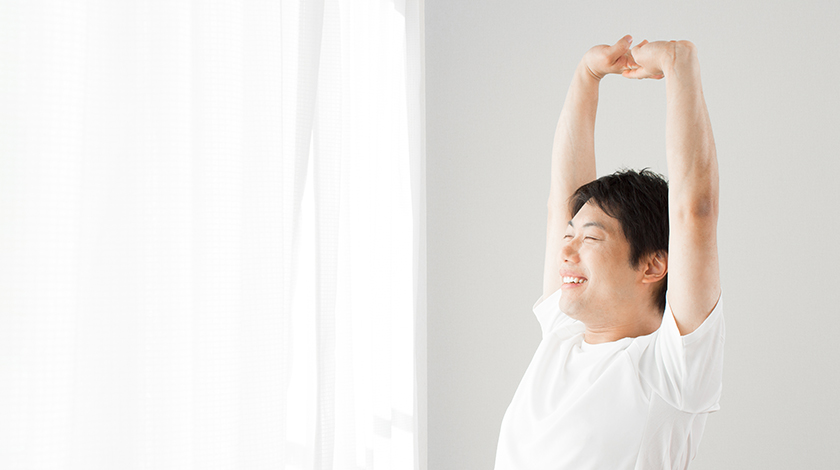Meditation isn't hocus-pocus. Study shows that regular meditation helps to strengthen the connections within your brain, or "neural synapses", helping you to think faster and remember more clearly.1 Regular meditation may also reduce your cortisol levels.2

Cortisol is a hormone associated with stress and has been linked with increased levels of stomach fat and blood sugar. So if you've been coping with stress at work and at home by indulging too often in your favorite snacks, try meditation instead!

The best time to meditate is right after you wake up and right before you go to bed. Set aside two 5 to 10-minute sessions each day for quiet meditation. Reaching a state of quiet contemplation starts with deep breathing. As you breathe deeply, relax each of the muscles in your body one by one, starting with your lower limbs and finishing with your face muscles. Try to recall a time when you felt relaxed and carefree, and focus on that memory to remove yourself from your surroundings.
Meditation takes practice. But in today's busy world, a few minutes of peaceful silence is a rare commodity indeed, and the health benefits make it all the more worthwhile!
Sources
- The unique brain anatomy of meditation practitioners: alterations in cortical gyrification. Luders E, Kurth F, Mayer EA, Toga AW, Narr KL, Gaser C. Frontiers in Human Neuroscience. 2012;6:34. Epub 2012 Feb 29.
- Iglesias SL, Azzara S, Argibay JC, Arnaiz ML, de Valle Carpineta M, Granchetti H, Lagomarsino E,Psychological and Physiological Response of Students to Different Types of Stress Management Programs. American Journal of Health Promotion. 2012; 26:(6) e149-e158.

